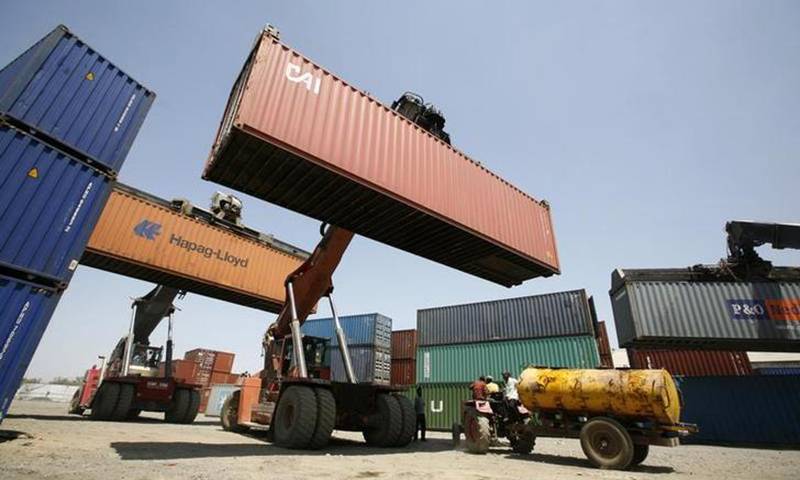
Late Friday evening finally brought some good news on the economic front as the State Bank of Pakistan released the Balance of Payments summary for November 2022.
As per the official data, the current account deficit (CAD) stood at $276 million, contracting by a massive 86 percent in comparison to the $1.9 billion figure of November 2021. When compared to the preceding month’s CAD ($569 million), the deficit shrank by 51 percent.
“In Nov 22, the current account deficit shrank to $0.28bn from $0.57bn in Oct 22. Cumulatively, during Jul-Nov22 it has contracted by more than half to $3.1bn against $7.2bn in Jul-Nov21, with imports falling by $4.8bn (-16%) & exports broadly unchanged,” read the official statement of the State Bank of Pakistan (SBP).
As per experts, the CAD for the fiscal year 2023 is expected to remain under $10 billion due to import suppression measures and a fall in global petroleum prices.
However, the collateral damage of the contractionary measures is the country’s economic growth. Some of Pakistan’s largest business sectors are heavily dependent on imported raw materials and machinery.
As a consequence of administrative restrictions, the output of these businesses has been reduced significantly with industrialists warning of complete shutdowns and massive layoffs. To add to the woes, the export sector is also experiencing a slowdown due to a reduction in global demand and production capacity constraints.
Further, the remittances from overseas Pakistanis continued the downward trajectory. The year-on-year decline in November was around 14 percent while a month-on-month decrease of 4.8 percent was recorded.
The steady decline can be attributed to the clouds of recession that are hovering over the western countries with a significant Pakistani diaspora. Also, those sending in the money are resorting to illegal channels of Hundi/Hawala for better rates, especially the ones residing in the Middle East.
Experts are of the opinion that the current political climate and the looming default risk of the country doesn’t inspire much confidence amongst overseas Pakistanis either.
Against the backdrop of this crisis, the economic managers of the country are trying to woe the IMF and bilateral partners into providing much-needed financial support.
(by Ahtasam Ahmad)
As per the official data, the current account deficit (CAD) stood at $276 million, contracting by a massive 86 percent in comparison to the $1.9 billion figure of November 2021. When compared to the preceding month’s CAD ($569 million), the deficit shrank by 51 percent.
“In Nov 22, the current account deficit shrank to $0.28bn from $0.57bn in Oct 22. Cumulatively, during Jul-Nov22 it has contracted by more than half to $3.1bn against $7.2bn in Jul-Nov21, with imports falling by $4.8bn (-16%) & exports broadly unchanged,” read the official statement of the State Bank of Pakistan (SBP).
As per experts, the CAD for the fiscal year 2023 is expected to remain under $10 billion due to import suppression measures and a fall in global petroleum prices.
However, the collateral damage of the contractionary measures is the country’s economic growth. Some of Pakistan’s largest business sectors are heavily dependent on imported raw materials and machinery.
The remittances from overseas Pakistanis continued the downward trajectory. The year-on-year decline in November was around 14 percent while a month-on-month decrease of 4.8 percent was recorded.
As a consequence of administrative restrictions, the output of these businesses has been reduced significantly with industrialists warning of complete shutdowns and massive layoffs. To add to the woes, the export sector is also experiencing a slowdown due to a reduction in global demand and production capacity constraints.
Further, the remittances from overseas Pakistanis continued the downward trajectory. The year-on-year decline in November was around 14 percent while a month-on-month decrease of 4.8 percent was recorded.
The steady decline can be attributed to the clouds of recession that are hovering over the western countries with a significant Pakistani diaspora. Also, those sending in the money are resorting to illegal channels of Hundi/Hawala for better rates, especially the ones residing in the Middle East.
Experts are of the opinion that the current political climate and the looming default risk of the country doesn’t inspire much confidence amongst overseas Pakistanis either.
Against the backdrop of this crisis, the economic managers of the country are trying to woe the IMF and bilateral partners into providing much-needed financial support.
(by Ahtasam Ahmad)

